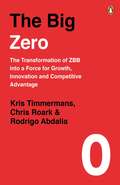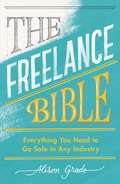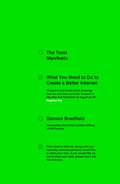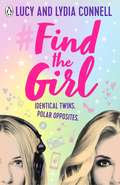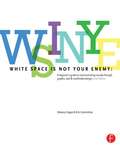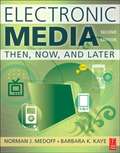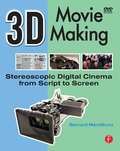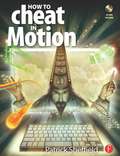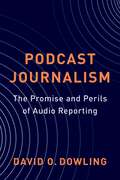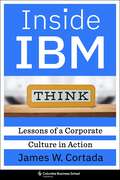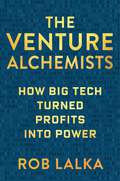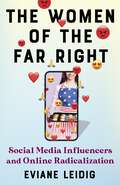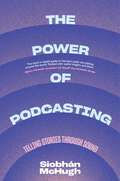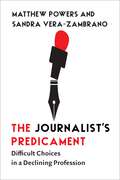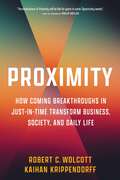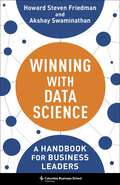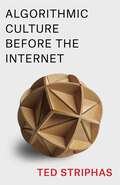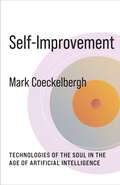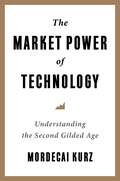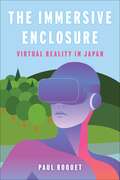- Table View
- List View
The Big Zero: The Transformation of ZBB into a Force for Growth, Innovation and Competitive Advantage
by Kris Timmermans Chris Roark Rodrigo AbdallaDo you want to achieve startup speed at enterprise scale? Growth. It's what every company strives for. But it's become more and more elusive as companies struggle to hit their projected growth rates in an increasingly competitive market. While zero-based budgeting (ZBB) has been wielded for decades to cut costs, it falls short when it comes to spurring growth. But a zero-based mindset (ZBx) does that and more. ZBx facilitates forensic oversight into resource allocation that funnels savings back into growth initiatives and encourages new sources of innovation. The Big Zero shows how a ZBx approach focuses on agility over austerity, visibility over guesswork and the future over the past to fuel growth and competitiveness.
The Freelance Bible: Everything You Need to Go Solo in Any Industry
by Alison Grade'Finally! The book that millions of people have been crying out for. An empowering guide of how to use your work to achieve independence, inspiration and - crucially - balance' Bruce Daisley, author of The Joy of Work and VP,TwitterYou want to go freelance. You want to make your career work for you, on your terms and determined by your own definition of success. You want autonomy, flexibility and variety.But where do you start?In The Freelance Bible, award-winning entrepreneur and freelancer, Alison Grade, guides you through absolutely everything that you need to know to start your successful self-employed life.Starting from day one, she will help you develop your personal brand, pick up the financial essentials, grow your client base, manage your work-life balance, negotiate deals and value your time as you become more established. This is your complete guide to turning your talent into a fulfilling and sustainable career.'Alison strikes an excellent and inspirational balance; sharing tips and advice that help you work out how to be secure in insecurity and ace the journey to becoming a freelancer' Alex Mahon CEO, Channel 4
Let It Go: My Extraordinary Story - From Refugee to Entrepreneur to Philanthropist
by Dame Stephanie Shirley CH Richard AskwithA moving memoir from a woman who made a fortune in a man's world and then gave it all away...soon to be turned into a filmIn 1962, Stephanie 'Steve' Shirley created a software company when the concept of software barely existed. Freelance Programmers employed women to work on complex projects such as Concorde's black box recorder from the comfort of their own home. Shirley empowered a generation of women in technology, giving them unheard of freedom to choose their own hours and manage their own workloads. The business thrived and Shirley gradually transferred ownership to her staff, creating 70 millionaires in the process.Let It Go explores Shirley's trail blazing career as an entrepreneur but it also charts her incredible personal story - her dramatic arrival in England as an unaccompanied Kindertransport refugee during World War Two and the tragic loss of her only child who suffered severely from Autism.Today, Dame Stephanie Shirley is one of Britain's leading philanthropists, devoting most of her time, energy and wealth to charities that are close to her heart. In Let It Go, Shirley tells her inspirational story and explains why giving her wealth away - letting it go - has brought her infinitely more happiness and fulfilment than acquiring it in the first place.Co-written with Richard Askwith, the former Executive Editor of The Independent and the award-winning author of seven books in his own name, including biographies of Emil Zátopek and Lata Brandisová.'An extraordinary tale of creativity and resilience' - Guardian'This engrossing story of an extraordinary life is filled with lessons in what it means to be human' - Financial Times
The Trust Manifesto: What you Need to do to Create a Better Internet
by Damian BradfieldFrom the moment we wake up and unlock our phones, we're producing data. We offer up our unique fingerprint to the online world, scan our route to work, listen to a guided meditation or favourite playlist, slide money around, share documents and update our social media accounts. We reach for our phones up to 200 times a day, not knowing which companies are storing, using, selling and manipulating our data. But do we care? We're busy. We've got lives. We're pressed for time! There aren't enough hours in the day to read the terms and conditions. Or, maybe we're happy to trade our personal data for convenient services and to make our lives easier?Big data is the phenomenon of our age, but should we trust it without question? This is the trust dilemma.In 2009, Damian Bradfield founded WeTransfer, the largest file-sharing platform in the world with 50 million global users shipping more than one billion files of data a month. His unique experience of the big data economy has led him to question if there is another way to build the internet, one that is fairer and safer for everyone and, in The Trust Manifesto, he lays out this vision.
Find The Girl: All That Glitters
by Lucy ConnellNancy Palmer used to be Insta-famous and her twin Nina used to shy away from everyone. Things can change pretty quickly. Nina has been accepted onto a Guildhall music course and is famous because of her pop star boyfriend, Chase. Nancy is trying to put her name on the map by becoming a music journalist and is not getting distracted by Chase's hot bandmate Miles. When their estranged dad shows up out of the blue and shows an interest in Nina's budding music career, Nancy isn't sure he's just there to make amends. As they attempt to find their way through new challenges, they both have to remember that you have to pave your own path to success and sometimes fame comes at a price.
Find The Girl
by Lucy Connell Lydia ConnellThe perfect summer read for fans of Girl Online and Rainbow Rowell! ----- Falling for your best friend's love interest is bad...Falling for your twin's is catastrophic.As kids, Nina and Nancy were inseparable. As teenagers, not so much...Where Nancy is popular, an Instagram star, and obsessed with boy band heartthrob Chase, Nina is shy; a talented classical musician, and shuns the spotlight that her sister thrives in.But when the wrong twin unwittingly ends up at the centre of a romantic social media storm, the bonds of twin-ship will be tested like never before... Written in collaboration with Katy Birchall, #FINDTHEGIRL is a very modern twist on a Cinderella story.
White Space Is Not Your Enemy: A Beginner's Guide To Communicating Visually Through Graphic, Web And Multimedia Design
by Kim Golombisky Rebecca HagenDesigning a website or brochure without an art background? Then step away from the computer and read this engaging, conversational introduction to visual communications first. Written for the beginner, White Space is Not Your Enemy, Second Edition, is a practical graphic design and layout guide that introduces the concepts and practices necessary for producing effective visual communication across a variety of formats--from web to print. <P><P> This beautifully illustrated, full-color book covers all of the basics to help you develop your eye and produce evocative designs that work. Topics include: <P> * What is design? <P> * Pre-design research and brainstorming. <P> * The "works-every-time layout" and "13 layout sins." <P> * The elements and principles of design. <P> * Layouts for impact. <P> * Getting along with type. <P> * Choosing and using color. <P> * Working with photos and illustrations. <P> * Intros to infographics, storyboarding and multimedia components. <P> * Output for the web and print. <P> Visit www. whitespacedesignbook. com for additional supporting materials.
Electronic Media: Then, Now, And Later (Second Edition)
by Norman Medoff Barbara K. KayeElectronic Media connects the traditional world of broadcasting with the contemporary universe of digital electronic media. It provides a synopsis of the beginnings of electronic media in broadcasting, and the subsequent advancements into digital media. Underlying the structure of the book is a "See It Then, See It Now, See It Later" approach that focuses on how past innovations lay the groundwork for changing trends in technology, providing the opportunity and demand for change in both broadcasting and digital media. FYI and Zoom-In boxes point to further information, tying together the immediate and long-ranging issues surrounding electronic media. Career Tracks feature the experiences of industry experts and share tips in how to approach this challenging industry.
3D Movie Making: Stereoscopic Digital Cinema From Script To Screen
by Bernard MendiburuHollywood is going 3D! Join the revolution with this primer to all of the essential skills for live action 3D, from preproduction through distribution. 3D perception and science is presented in an accessible way that provides the principles of Stereoscopic vision you need to make the transition from the 2D world. Tools of the trade are enumerated with an eye on current constraints and what is coming down the pike to smooth the way. Step-by-step instructions detail how 3D processes affect every stage of the production including screenwriting, art direction, principle photography, editing, visual effects and distribution. The companion DVD includes an array of 2D and 3D images that demonstrate concepts and techniques, 3D movie shorts that showcase alternative techniques, After Effects project files to explore and manipulate for effect, and a resource list of software tools and tutorials that demonstrate techniques. The DVD is not included with the E-book. Please contact the publisher for access to the DVD content by emailing dennis.mcgonagle@taylorandfrancis.com
How to Cheat in Motion
by Patrick SheffieldThe text provides a "cookbook" style of learning computer animation, presenting the user with specific recipes to achieve desirable outcomes. This practical guide helps readers to enhance titles, motion graphics and visual effects with Motion. Step-by-step instruction is concisely described and lavishly illustrated.
Hate Speech and Political Violence: Far-Right Rhetoric from the Tea Party to the Insurrection
by Brigitte L. Nacos Robert Shapiro Yaeli Bloch-ElkonHow did the United States descend into crisis, with institutions frayed, political violence mounting, and democracy itself in peril? This timely book identifies how the Tea Party and its extremist narratives laid the groundwork for the rise of Donald Trump, his MAGA movement, and the January 6, 2021, assault on the Capitol.Brigitte L. Nacos, Yaeli Bloch-Elkon, and Robert Y. Shapiro trace the escalation of a strain of extremist rhetoric in right-wing political discourse after the inauguration of Barack Obama. Drawing on extensive and in-depth analysis of political communication in both traditional media and online spaces, they demonstrate how the dominant rhetorical styles of the Trump era were pioneered by the Tea Party. A backlash to the election of the first Black president, this reactionary social movement deployed violent language and spread anti-Obama paranoia, with the assistance of media insiders, GOP leaders, and conservative advocacy groups. Donald Trump rose to political prominence by hitching himself to the “birther” racist conspiracy theory, espoused by many Tea Partiers, and drew from their aggressive and hyperpartisan repertoire. Ultimately, this book shows, the increasingly violent rhetoric of right-wing extremists spilled over into real-world political violence. Revealing the path the Tea Party blazed to Trump and the insurrectionists, Hate Speech and Political Violence provides timely new insights into the threats facing American democracy.
Podcast Journalism: The Promise and Perils of Audio Reporting
by David DowlingPodcasting’s stratospheric rise has inspired a new breed of audio reporting. Offering immersive storytelling for a binge-listening audience as well as reaching previously underserved communities, podcasts have become journalism’s most rapidly growing digital genre, buoying a beleaguered news industry. Yet many concerns have been raised about this new medium, such as the potential for disinformation, the influence of sponsors on content, the dominance of a few publishers and platforms, and at-times questionable adherence to journalistic principles.David O. Dowling critically examines how podcasting and its evolving conventions are transforming reporting—and even reshaping journalism’s core functions and identity. He considers podcast reporting’s most influential achievements as well as its most consequential ethical and journalistic shortcomings, emphasizing the reciprocal influences between podcasting and traditional and digital journalism. Podcasting, both as a medium and a business, has benefited from the blurring of boundaries separating news from entertainment, editorial from advertising, and neutrality from subjectivity. The same qualities and forces that have allowed podcasting to bypass the limitations of traditional categories, expand the space of social and political discourse, and provide openings for marginalized voices have also permitted corporations to extend their reach and far-right firebrands to increase their influence. Equally attentive to the medium’s strengths and flaws, this is a vital book for all readers interested in how podcasting has changed journalism.
Inside IBM: Lessons of a Corporate Culture in Action
by James W. CortadaIBM was the world’s leading provider of information technologies for much of the twentieth century. What made it so successful for such a long time, and what lessons can this iconic corporation teach present-day enterprises?James W. Cortada—a business historian who worked at IBM for many years—pinpoints the crucial role of IBM’s corporate culture. He provides an inside look at how this culture emerged and evolved over the course of nearly a century, bringing together the perspectives of employees, executives, and customers around the world. Through a series of case studies, Inside IBM explores the practices that built and reinforced organizational culture, including training of managers, employee benefits, company rituals, and the role of humor. It also considers the importance of material culture, such as coffee mugs and lapel pins.Cortada argues that IBM’s corporate culture aligned with its business imperatives for most of its history, allowing it to operate with a variety of stakeholders in mind and not simply prioritize stockholders. He identifies key lessons that managers can learn from IBM’s experience and apply in their own organizations today. This engaging and deeply researched book holds many insights for business historians, executives and managers concerned with stakeholder relations, professionals interested in corporate culture, and IBMers.
The Venture Alchemists: How Big Tech Turned Profits Into Power
by Rob LalkaWe once idolized tech entrepreneurs for creating innovations that seemed like modern miracles. Yet our faith has been shattered. We now blame them for spreading lies, breaking laws, and causing chaos. Yesterday’s Silicon Valley darlings have become today’s Big Tech villains. Which is it? Are they superheroes or scoundrels? Or is it more complicated, some blend of both?In The Venture Alchemists, Rob Lalka demystifies how tech entrepreneurs built empires that made trillions. Meta started as a cruel Halloween prank, Alphabet began as a master’s thesis that warned against corporate deception, and Palantir came from a campus controversy over hateful speech. These largely forgotten origin stories show how ordinary fears and youthful ambitions shaped their ventures—making each tech tale relatable, both wonderfully and tragically human. Readers learn about the adversities tech entrepreneurs overcame, the troubling tradeoffs they made, and the tremendous power they now wield. Using leaked documents and previously unpublished archival material, Lalka takes readers inside Big Tech’s worst exploitations and abuses, alongside many good intentions and moral compromises.But this story remains unfinished, and The Venture Alchemists ultimately offers hope from the people who, decades ago, warned about the risks of the emerging Internet. Their insights illuminate a path toward more responsible innovations, so that technologies aren’t dangerous weapons but valuable tools that ensure progress, improve society, and enhance our daily lives.
The Women of the Far Right: Social Media Influencers and Online Radicalization
by Eviane LeidigOn mainstream social media platforms, far-right women make extremism relatable. They share Instagram stories about organic foods that help pregnant women propagate the “pure” white race and post behind-the-scenes selfies at antivaccination rallies. These social media personalities model a feminine lifestyle, at once promoting their personal brands and radicalizing their followers. Amid discussions of issues like dating, marriage, and family life, they call on women to become housewives to counteract the corrosive effects of feminism and champion the Great Replacement conspiracy theory, which motivated massacres in Christchurch, El Paso, and Buffalo.Eviane Leidig offers an in-depth look into the world of far-right women influencers, exploring the digital lives they cultivate as they seek new recruits for white nationalism. Going beyond stereotypes of the typical male white supremacist, she uncovers how young, attractive women are playing key roles as propagandists, organizers, fundraisers, and entrepreneurs. Leidig argues that far-right women are marketing themselves as authentic and accessible in order to reach new followers and spread a hateful ideology. This insidious—and highly gendered—strategy takes advantage of the structure of social media platforms, where far-right women influencers’ content is shared with and promoted to mainstream audiences. Providing much-needed expertise on gender and the far right, this timely and accessible book also details online and offline approaches to countering extremism.
Vote Gun: How Gun Rights Became Politicized in the United States
by Patrick J. CharlesToday, gun control is one of the most polarizing topics in American politics. However, before the 1960s, positions on firearms rights did not necessarily map onto partisan affiliation. What explains this drastic shift?Patrick J. Charles charts the rise of gun rights activism from the early twentieth century through the 1980 presidential election, pinpointing the role of the 1968 Gun Control Act. Gun rights advocates including the National Rifle Association had lobbied legislators for decades, but they had cast firearms control as a local issue. After the assassination of President John F. Kennedy in 1963 spurred congressional proposals to regulate firearms, gun rights advocates found common cause with states’ rights proponents opposed to civil rights legislation. Following the enactment of the Gun Control Act, lawmakers on both sides of the aisle began to stake out firm positions. Politicians including Richard Nixon and Ronald Reagan recognized the potential of gun control as a wedge issue, and gun rights became increasingly tied to the Republican Party.Drawing on a vast range of archival evidence, Charles offers new insight into the evolution of the gun rights movement and how politicians responded to anti–gun control hardliners. He examines in detail how the National Rifle Association reinvented itself as well as how other advocacy groups challenged the NRA’s political monopoly. Offering a deep dive into the politicization of gun rights, Vote Gun reveals the origins of the acrimonious divisions that persist to this day.
The Power of Podcasting: Telling Stories Through Sound
by Siobhàn McHughPodcasts have become an essential part of popular culture for millions of listeners. They provide a new way to absorb information that once might have been read in newspapers, books, or magazines or heard over the radio. Podcasting is hailed for its intimacy and authenticity in an age of mistrust and disinformation. But while it is relatively easy to make a podcast, it is much harder to make a great one.In The Power of Podcasting, award-winning podcast producer and leading international audio scholar Siobhán McHugh dissects what makes a good podcast and outlines how you can create one yourself. She blends practical insights into and critical analysis of the art of audio storytelling. Packed with case studies, history, tips, and techniques from McHugh’s decades of experience, this book brings together a wealth of knowledge to introduce readers to the possibilities of the world of sound.If you’ve ever said you want to start a podcast, this is the book you need to understand the craft, the history, and the power of creating meaningful stories through sound.
The Journalist's Predicament: Difficult Choices in a Declining Profession
by Matthew Powers Sandra Vera-ZambranoLow pay. Uncertain work prospects. Diminished prestige. Why would anyone still want be a journalist? Drawing on in-depth interviews in France and the United States, Matthew Powers and Sandra Vera-Zambrano explore the ways individuals come to believe that journalism is a worthy pursuit—and how that conviction is managed and sometimes dissolves amid the profession’s ongoing upheavals.For many people, journalism represents a job that is interesting and substantial, with opportunities for expression, a sense of self-fulfillment, and a connection to broader social values. By distilling complex ideas, holding the powerful to account, and revealing hidden realities, journalists play a crucial role in helping audiences make sense of the world. Experiences in the profession, though, are often far more disappointing. Many find themselves doing tasks that bear little relation to what attracted them initially or are frustrated by institutions privileging what sells over what informs. The imbalance between the profession’s economic woes and its social importance threatens to erode individuals’ beliefs that journalism remains a worthwhile pursuit. Powers and Vera-Zambrano emphasize that, as with many seemingly individual choices, social factors—class, gender, education, and race—shape how journalists make sense of their profession and whether or not they remain in it.An in-depth story of one profession under pressure, The Journalist’s Predicament uncovers tensions that also confront other socially important jobs like teaching, nursing, and caretaking.
Proximity: How Coming Breakthroughs in Just-in-Time Transform Business, Society, and Daily Life
by Kaihan Krippendorff Robert C. WolcottWhat if you could have whatever you want, produced and provided immediately and affordably no matter how customized—with minimal environmental impact? Products, services, and experiences on demand. Just-in-time anything, anywhere, anytime. This radical change is underway, as digital technologies push the production and provision of value ever closer to the moment of demand.Robert C. Wolcott and Kaihan Krippendorff provide an indispensable guide to the Proximity revolution, showing how it’s transforming every industry—and our lives. Offering unparalleled foresight for leaders and innovators, they reveal how pervasive this trend will be. Proximity represents an entirely new way to serve customers, with critical implications for corporate strategy, investing, public policy, supply chain resilience, and sustainability. Incremental changes to existing business models won’t suffice.Through interviews and compelling examples, Proximity shares stories of the people and companies leading the way. The book places rapidly advancing technologies—from generative AI and 3D printing to lab-grown meats, renewable energy, and virtual reality—in context and explores the factors accelerating the transformation.Proximity offers a playbook for business leaders, investors, and entrepreneurs to win this rapidly emerging game—and for each of us to consider the implications for our careers, families, communities, and lives.
Winning with Data Science: A Handbook for Business Leaders
by Howard Steven Friedman Akshay SwaminathanWhether you are a newly minted MBA or a project manager at a Fortune 500 company, data science will play a major role in your career. Knowing how to communicate effectively with data scientists in order to obtain maximum value from their expertise is essential. This book is a compelling and comprehensive guide to data science, emphasizing its real-world business applications and focusing on how to collaborate productively with data science teams.Taking an engaging narrative approach, Winning with Data Science covers the fundamental concepts without getting bogged down in complex equations or programming languages. It provides clear explanations of key terms, tools, and techniques, illustrated through practical examples. The book follows the stories of Kamala and Steve, two professionals who need to collaborate with data science teams to achieve their business goals. Howard Steven Friedman and Akshay Swaminathan walk readers through each step of managing a data science project, from understanding the different roles on a data science team to identifying the right software. They equip readers with critical questions to ask data analysts, statisticians, data scientists, and other technical experts to avoid wasting time and money. Winning with Data Science is a must-read for anyone who works with data science teams or is interested in the practical side of the subject.
Algorithmic Culture Before the Internet
by Ted StriphasToday, algorithms exercise outsize influence on cultural decision-making, shaping and even reshaping the concept of culture. How were automated, computational processes empowered to perform this work? What forces prompted the emergence of algorithmic culture?Algorithmic Culture Before the Internet is a history of how culture and computation came to be entangled. From Cambridge, England, to Cambridge, Massachusetts, by way of medieval Baghdad, this book pinpoints the critical junctures at which algorithmic culture began to coalesce in language long before it materialized in the technological wizardry of Silicon Valley. Revising and extending the methodology of “keywords,” Ted Striphas examines changing concepts and definitions of culture, including the development of the field of cultural studies, and stresses the importance of language in the history of technology.Offering historical and interdisciplinary perspective on the relationship of culture and computation, this book provides urgently needed context for the algorithmic injustices that beset the world today.
Self-Improvement: Technologies of the Soul in the Age of Artificial Intelligence (No Limits)
by Mark CoeckelberghWe are obsessed with self-improvement; it’s a billion-dollar industry. But apps, workshops, speakers, retreats, and life hacks have not made us happier. Obsessed with the endless task of perfecting ourselves, we have become restless, anxious, and desperate. We are improving ourselves to death. The culture of self-improvement stems from philosophical classics, perfectionist religions, and a ruthless strain of capitalism—but today, new technologies shape what it means to improve the self. The old humanist culture has given way to artificial intelligence, social media, and big data: powerful tools that do not only inform us but also measure, compare, and perhaps change us forever.This book shows how self-improvement culture became so toxic—and why we need both a new concept of the self and a mission of social change in order to escape it. Mark Coeckelbergh delves into the history of the ideas that shaped this culture, critically analyzes the role of technology, and explores surprising paths out of the self-improvement trap. Digital detox is no longer a viable option and advice based on ancient wisdom sounds like yet more self-help memes: The only way out is to transform our social and technological environment. Coeckelbergh advocates new “narrative technologies” that help us tell different and better stories about ourselves. However, he cautions, there is no shortcut that avoids the ancient philosophical quest to know yourself, or the obligation to cultivate the good life and the good society.
The Market Power of Technology: Understanding the Second Gilded Age
by Mordecai KurzSince the 1980s, the United States has regressed to a level of economic inequality not seen since the Gilded Age in the late nineteenth century. At the same time, technological innovation has transformed society, and a core priority of public policy has been promoting innovation. What is the relationship between economic inequality and technological change?Mordecai Kurz develops a comprehensive integrated theory of the dynamics of market power and income inequality. He shows that technological innovations are not simply sources of growth and progress: they sow the seeds of market power. In a free market economy with intellectual property rights, firms’ control over technology enables them to expand, attain monopoly power, and earn exorbitant profits. Competition among innovators does not eliminate market power because technological competition is different from standard competition; it results in only one or two winners. Kurz provides a pioneering analysis grounded on quantifying technological market power and its effects on inequality, innovation, and economic growth. He outlines what causes market power to rise and fall and details its macroeconomic and distributional consequences.Kurz demonstrates that technological market power tends to rise, increasing inequality of income and wealth. Unchecked inequality threatens the foundations of democracy: public policy is the only counterbalancing force that can restrain corporate power, attain more egalitarian distribution of wealth, and make democracy compatible with capitalism. Presenting a new paradigm for understanding today’s vast inequalities, this book offers detailed proposals to redress them by restricting corporate mergers and acquisitions, reforming patent law, improving the balance of power in the labor market, increasing taxation, promoting upward mobility, and stabilizing the middle class.
Syria Divided: Patterns of Violence in a Complex Civil War (Columbia Studies in Middle East Politics)
by Ora SzekelyThe civil war in Syria—which has claimed more than 600,000 lives and displaced over half of the country’s population since 2011—is an enormously complex conflict. The combatants include a wide array of state and nonstate forces, both Syrian and international. Adding to the war’s complexity, its many participants understand and explain the war in a range of different ways. For some, it is a fight for dignity and democracy; for others, a sectarian or communal conflict; still others see it as a fight against terrorism or a consequence of foreign interference.Ora Szekely draws on sources including in-depth interviews, conflict data, and propaganda distributed through social media to examine how these competing narratives have shaped the course of the conflict. Mapping out the broad patterns of violence among combatants and against civilians, Szekely argues that the competition to control the narrative in the eyes of important audiences at home and abroad has not only influenced the choices of participants, it has also—shaped in part by the use of social media—led many to treat warfare as a kind of performance.An insightful analysis of the forces fueling a brutal civil war, Syria Divided offers new perspectives on the performative aspects of violence, the weaponization of social media, and key features of twenty-first-century warfare.
The Immersive Enclosure: Virtual Reality in Japan
by Paul RoquetAlthough virtual reality promises to immerse a person in another world, its true power lies in its ability to sever a person’s spatial situatedness in this one. This is especially clear in Japan, where the VR headset has been embraced as a way to block off existing social environments and reroute perception into more malleable virtual platforms. Is immersion just another name for enclosure?In this groundbreaking analysis of virtual reality, Paul Roquet uncovers how the technology is reshaping the politics of labor, gender, home, and nation. He examines how VR in Japan diverged from American militarism and techno-utopian visions and became a tool for renegotiating personal space. Individuals turned to the VR headset to immerse themselves in three-dimensional worlds drawn from manga, video games, and genre literature. The Japanese government promised VR-operated robots would enable a new era of remote work, targeting those who could not otherwise leave home. Middle-aged men and corporate brands used VR to reimagine themselves through the virtual bodies of anime-styled teenage girls. At a time when digital platforms continue to encroach on everyday life, The Immersive Enclosure takes a critical look at these attempts to jettison existing social realities and offers a bold new approach for understanding the media environments to come.
